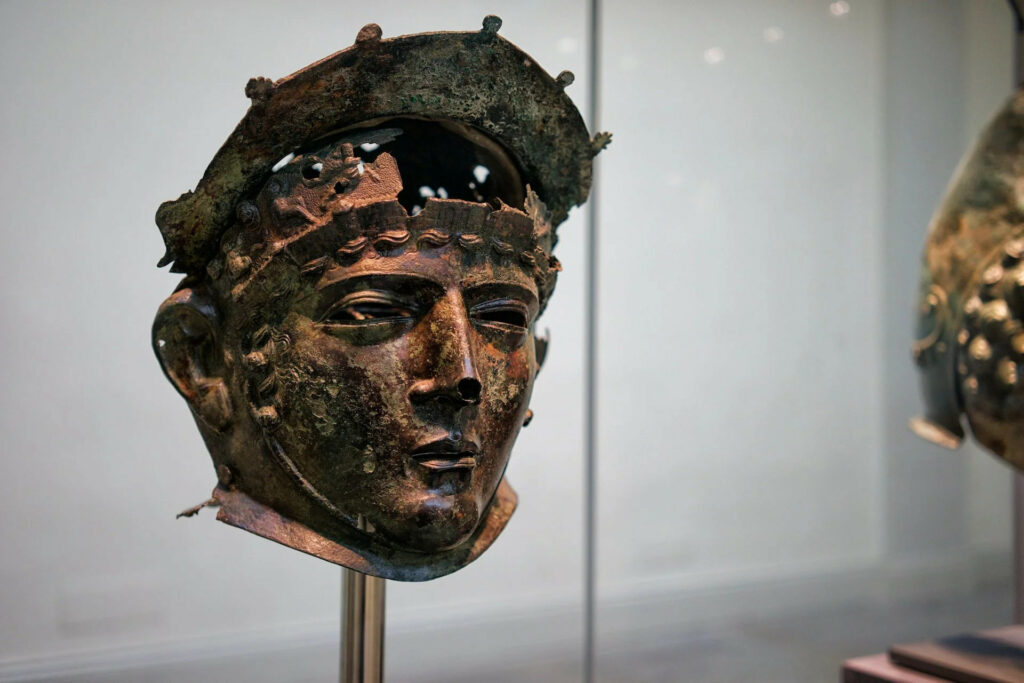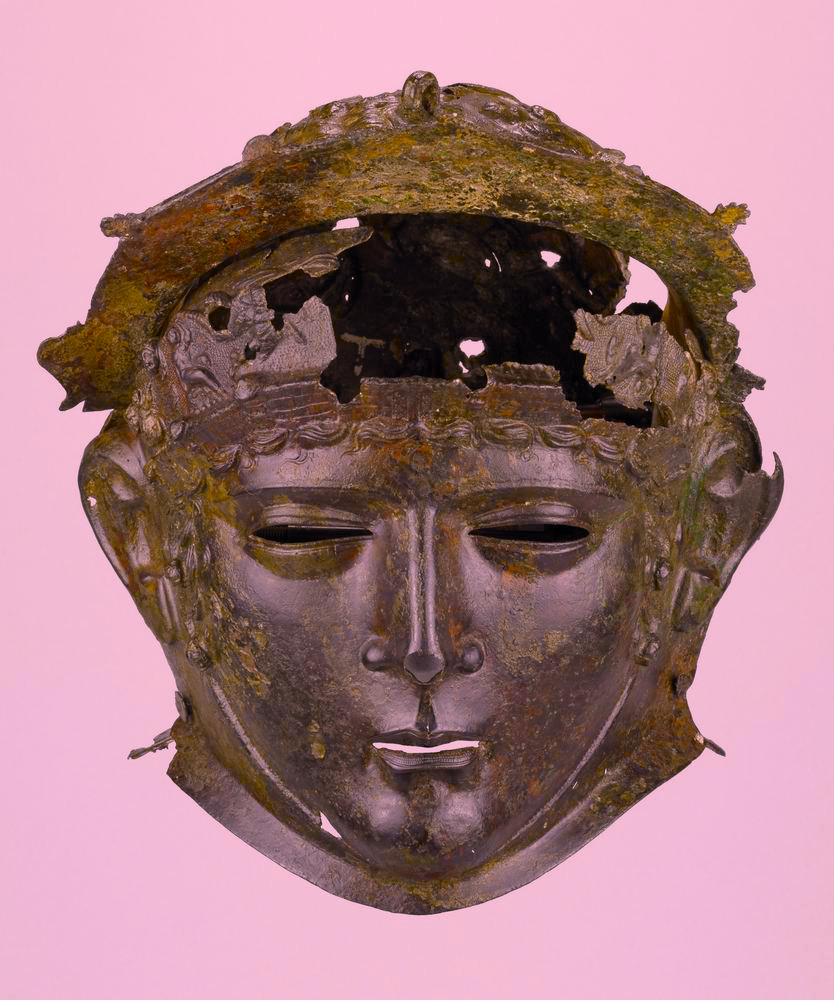A Remarkable Discovery in Lancashire
In 1796, a young boy stumbled upon a hollow near Ribchester, a small town in Lancashire, England. Inside lay an astonishing collection of ancient Roman artifacts. Among the finds were paterae (libation bowls), fragments of basins, plates, pieces of a vase, and a small bust of Minerva. However, the most extraordinary discovery was an elaborately crafted bronze helmet, later named the Ribchester Helmet. Dated to the late 1st or early 2nd century AD, the artifacts were believed to have been stored in a now-decayed wooden box, preserving a unique snapshot of Roman life in Britain.

Design and Purpose: A Ceremonial Masterpiece
The Ribchester Helmet is celebrated as one of the finest examples of Roman ceremonial craftsmanship. Unlike functional helmets designed for battle, this piece was richly adorned and impractical for combat use. Historians believe it served as a ceremonial or parade helmet, worn by high-ranking cavalry officers during Hippika gymnasia—spectacular cavalry tournaments that showcased martial skill, discipline, and loyalty to the Roman Empire.
Intricate Craftsmanship
The helmet features a face mask and elaborate engravings, likely depicting mythological themes and Roman symbols. These details served both aesthetic and symbolic purposes, reflecting the wearer’s elite status and the artistic sophistication of the time. The face mask, designed to evoke power and mystery, added to the drama of the tournaments, where participants often performed as mythological figures in theatrical displays.
![The Ribchester Helmet. A ceremonial bronze Roman cavalry parade helmet with face mask, circa 1st-2nd century AD. Uncovered near Ribchester, England. (Front:Right Side) [750x893] : r/ArtefactPorn](https://external-preview.redd.it/S-wnrC4FTDtD5qJ_jUbF511373nkTUFTP5bBPtfapDE.jpg?auto=webp&s=66ec3326b4d4ed788f683ddff25de115fe52ecdc)
Ribchester: A Roman Frontier Settlement
Ribchester, known as Bremetennacum Veteranorum in Roman times, was a key military outpost in northern Britain. Situated near the River Ribble, it housed a cavalry garrison tasked with defending the empire’s frontier. The discovery of the helmet and other artifacts underscores the settlement’s importance as a hub of Roman administration and military activity in the region. These findings provide valuable insights into the lives of Roman soldiers stationed far from the heart of the empire.

Cultural and Historical Significance
The Ribchester Helmet is more than an artifact; it is a window into the ceremonial traditions of the Roman military. Tournaments like the Hippika gymnasia were not mere entertainment—they reinforced the discipline, hierarchy, and loyalty essential to maintaining the empire’s vast territories. The helmet’s elaborate design highlights the blend of military prestige and artistic expression that defined Roman culture.
A Legacy Preserved
Now housed in the British Museum, the Ribchester Helmet continues to captivate historians, archaeologists, and visitors alike. Its preservation and intricate details provide a tangible link to the grandeur of Roman Britain. As a symbol of the empire’s artistic and ceremonial prowess, the helmet offers a lasting legacy of Rome’s cultural impact on the British Isles.

Conclusion
The Ribchester Helmet stands as a testament to the creativity and complexity of Roman civilization. From its discovery in a quiet Lancashire town to its place in a world-renowned museum, this ceremonial masterpiece bridges ancient and modern worlds, celebrating the enduring legacy of Rome’s artistic and military traditions.

